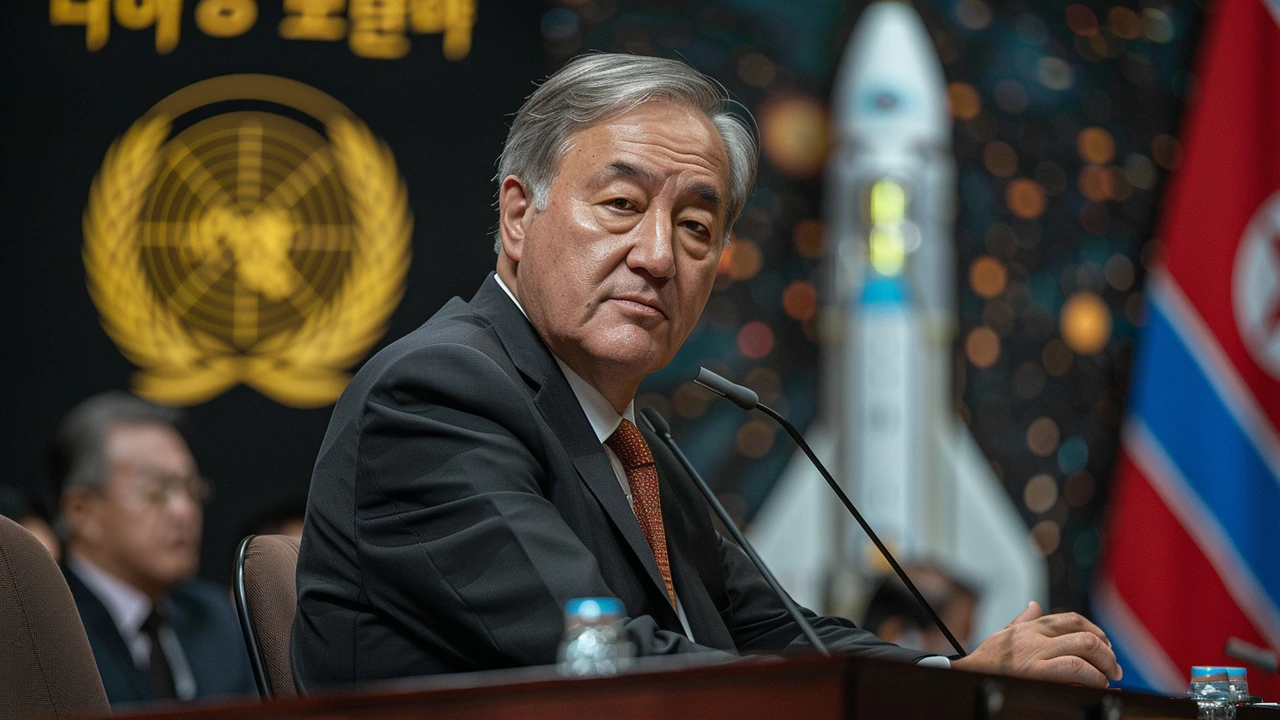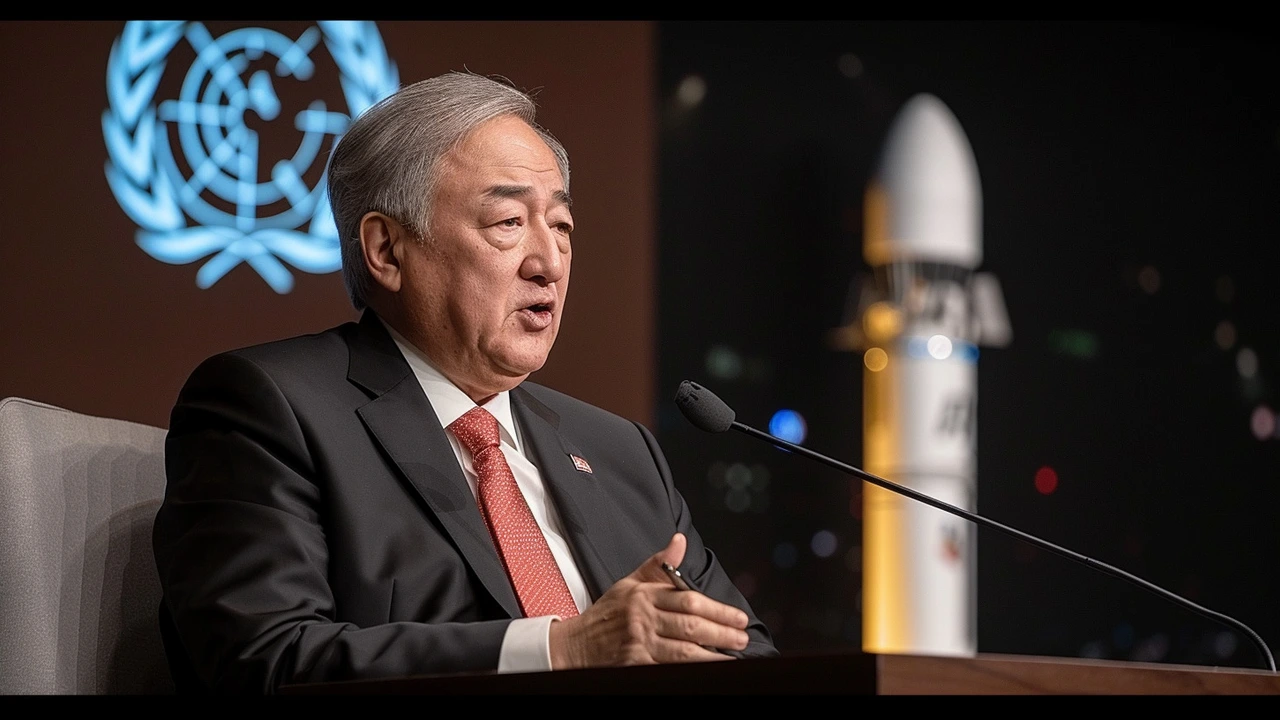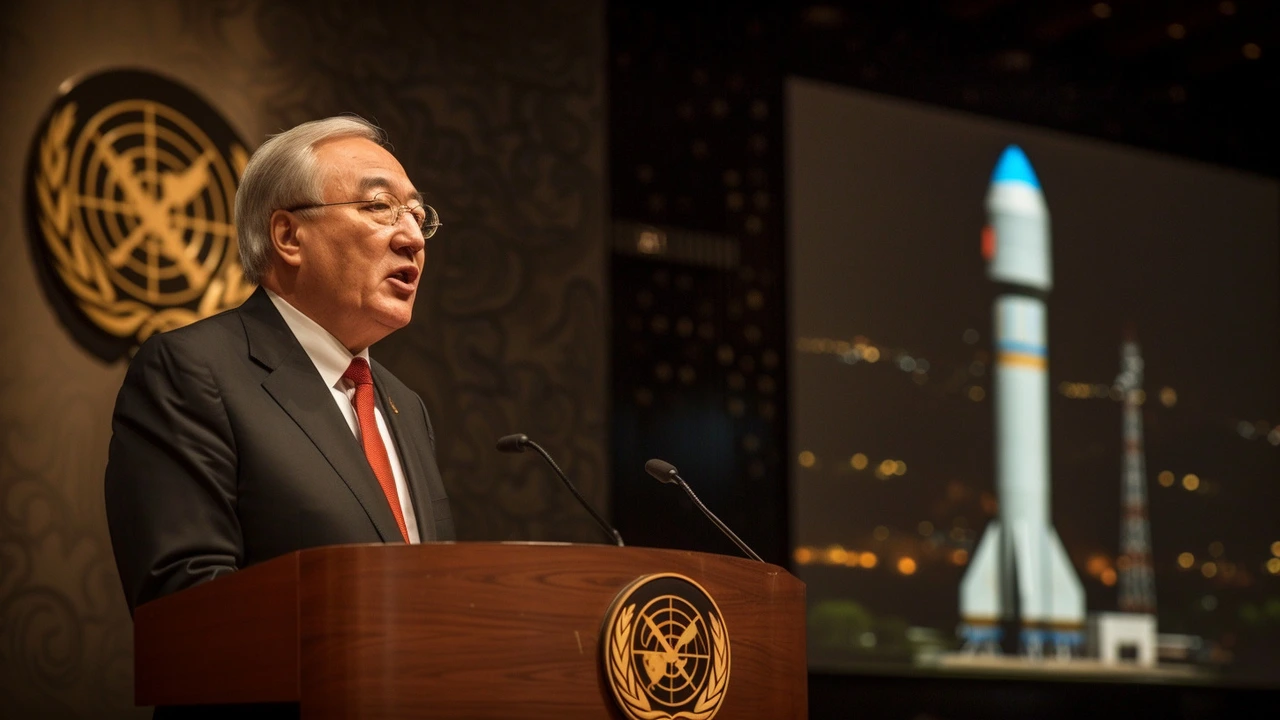North Korea Rebukes UN Chief Over Criticism of Satellite Launch

In World News
North Korea's Response to UN Criticism
North Korea has come out strongly against United Nations Secretary-General Antonio Guterres, following his condemnation of its recent satellite launch attempt, which ended in failure. The North Korean vice foreign minister did not mince words, labeling Guterres as a 'servant of the U.S.' for his stance on the matter. This incident has further strained the already tense relationship between the isolated nation and the international community.
North Korea's state media echoed these sentiments, insisting that the country has every right to pursue space development. They presented this venture as a necessary measure to defend against external threats, particularly those posed by the United States and its allies. This framing aligns with North Korea's long-standing narrative of needing to bolster its defenses against perceived aggression.
A Ceremony for New Homes and Increasing Agricultural Output
In addition to defending its space ambitions, North Korea has been actively working on domestic issues, notably in the agricultural sector. The state recently held numerous ceremonies to hand over new homes to farmers. These events were heavily publicized in state media and are part of a broader strategy to boost agricultural production amid ongoing food shortages. The move aims not only to improve living conditions for farmers but also to motivate them to increase crop yields.
This initiative underscores the leadership's focus on addressing one of the country's most persistent issues: food security. With agricultural production facing various challenges, from limited arable land to harsh climate conditions, the government's efforts to provide better housing for farmers could be seen as a pivotal step towards stabilizing food supplies.

Mobilizing Fishermen to Secure Food Supplies
Simultaneously, North Korea's state media has been highlighting initiatives to mobilize fishermen for the spring fishing season. This push aims to ramp up fish production, another critical component of the nation's food supply. By focusing on the fishing industry, North Korea looks to diversify its food sources and reduce dependency on agricultural produce alone.
The emphasis on increasing fish production also fits into the broader strategy of bolstering the country’s self-sufficiency. It is a direct response to the chronic shortages affecting the population, exacerbated by international sanctions and natural disasters that have struck the nation over recent years.
Continuing Space Program Amid Economic Struggles
Despite the economic hardships and food security issues, North Korea remains committed to advancing its space program. The failed satellite launch has not deterred the nation's resolve. Instead, it appears to have galvanized North Korean leadership to further invest in technological capabilities, portraying them as vital to national defense and sovereignty.
The juxtaposition of pursuing high-tech space ambitions while tackling basic economic challenges like food shortages presents a stark picture of North Korea's current priorities. On one hand, the nation insists on projecting strength and progress in technology on the global stage, while on the other, it grapples with ensuring enough food for its people.

Future Implications
The international community will likely continue to keep a close watch on North Korea's space endeavors, balancing concerns over potential military applications with the nation's stated intentions. The United Nations' disapproval, particularly from figures like Antonio Guterres, is unlikely to sway North Korea from its course. However, it does further complicate diplomatic engagements and efforts to bring the nation back to the negotiating table.
Meanwhile, domestically, North Korea’s dual focus on space and food production highlights the complexity of its governance strategies. By investing in high-profile projects like the satellite program and simultaneously addressing critical domestic needs, the leadership under Kim Jong-un aims to bolster both national pride and practical day-to-day survival.
Conclusion
As North Korea pushes forward, its defiance of international criticism and continued investment in both space and agricultural sectors will remain key areas of focus. For the global community, finding a balance between addressing security concerns and providing humanitarian support will be essential in navigating relations with this enigmatic nation.
Write a comment